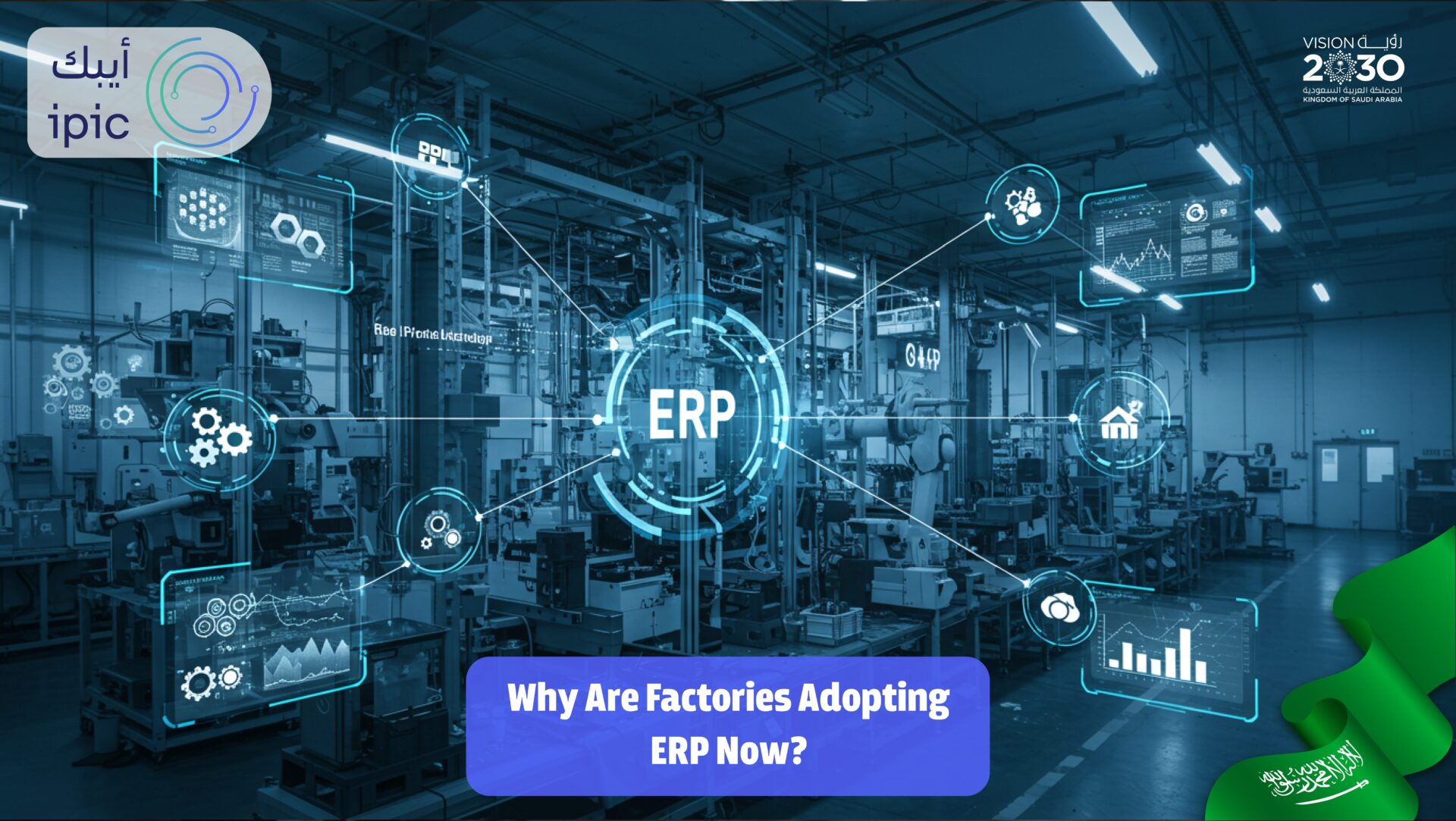Why Are Factories Adopting ERP Now?
In today’s fast-paced and ever-evolving manufacturing world, having just efficient operations is no longer enough. Factories need to be integrated, agile, and responsive to changes instantly. This is where Enterprise Resource Planning (ERP) systems come into play, which have become an essential tool for factories looking to achieve seamless operation and data management. ERP is no longer an option; it has become a necessity for factories aiming to stay competitive and sustainable. But why is ERP more important now than ever?
1. Integration Across Factory Departments
In many factories, each department often operates on separate systems or tools, which leads to data silos, complicating decision-making and causing redundant work. With an ERP system, all the functions of the factory, such as:
- Human Resources Management
- Inventory Management
- Production Management
- Finance and Accounting
- Purchasing
are integrated seamlessly. This ensures smooth information flow across all departments, enabling better coordination and efficiency.
2. Improved Efficiency and Cost Reduction
One of the key benefits factories gain from implementing ERP is improved operational efficiency. By automating processes and optimizing coordination between different departments, errors can be minimized and resources can be maximized. ERP helps in:
- Reducing operation time: such as order processing, shipping, and production.
- Minimizing waste: by optimizing resource usage.
- Reducing manual labor: allowing employees to focus on more strategic tasks.
3. Better Inventory Management
Managing inventory is a major challenge for many factories. Excess inventory increases costs, while insufficient stock can disrupt production. With ERP, real-time tracking of inventory allows factories to:
- Optimize order planning
- Analyze data to forecast inventory needs
- Enhance distribution: ensuring materials are available at the right time and place without excess.
4. Data-Driven Decision Making
With an integrated, up-to-date database, managers and decision-makers can make accurate, timely decisions. ERP provides real-time dashboards and reports that support strategic decisions, such as:
- Financial analysis: monitoring financial performance and analyzing profits and losses.
- Performance analysis: tracking production efficiency and quality.
- Demand forecasting: staying ahead of market needs and sales trends.
5. Improved Customer Experience
Factories are always looking to improve customer satisfaction by delivering products and services that meet customer expectations. ERP helps improve:
- Order accuracy: ensuring that products are available and ready when needed.
- Shipping tracking: monitoring shipments to ensure timely delivery.
- Customer service: offering detailed customer records and real-time data on customer needs.
6. Preparing for Industry 4.0 and Digital Transformation
ERP serves as the foundation for implementing Industry 4.0 technologies such as Internet of Things (IoT), Artificial Intelligence (AI), Big Data, and Digital Twin. By integrating ERP with these technologies, factories can enhance predictive capabilities, automation, and data management in smarter ways. For example, ERP can integrate seamlessly with MES (Manufacturing Execution Systems) to improve data flow between factory operations and management.
7. Compliance and Regulation
Compliance with local and international standards is crucial for manufacturing industries, particularly in regulated sectors like pharmaceuticals and petrochemicals. ERP helps ensure compliance by:
- Accurate financial reporting: ensuring the factory meets accounting standards.
- Quality management: ensuring products meet required standards.
- Environmental tracking: ensuring production processes adhere to environmental regulations.
The Role of IPIC in ERP Adoption
IPIC plays a crucial role in assisting factories to successfully implement systems. By offering integrated solutions tailored to the needs of each factory, IPIC helps factories in:
- Evaluating digital readiness of the factory.
- Designing and implementing customized solutions.
- Integrating with other systems like MES and IoT.
- Training operational teams on effective usage.
- Providing continuous support and improvement to ensure long-term success in digital transformation.
Conclusion
With the challenges faced by the manufacturing sector today, ERP systems have become indispensable for factories looking to remain competitive. By improving integration, increasing efficiency, enabling better decision-making, and reducing costs, ERP systems elevate factory performance and provide greater flexibility in navigating future challenges.
If you are in the manufacturing sector and looking to improve your performance while ensuring operational sustainability, ERP is the choice you should make. IPIC is here to help guide you through this transition.



